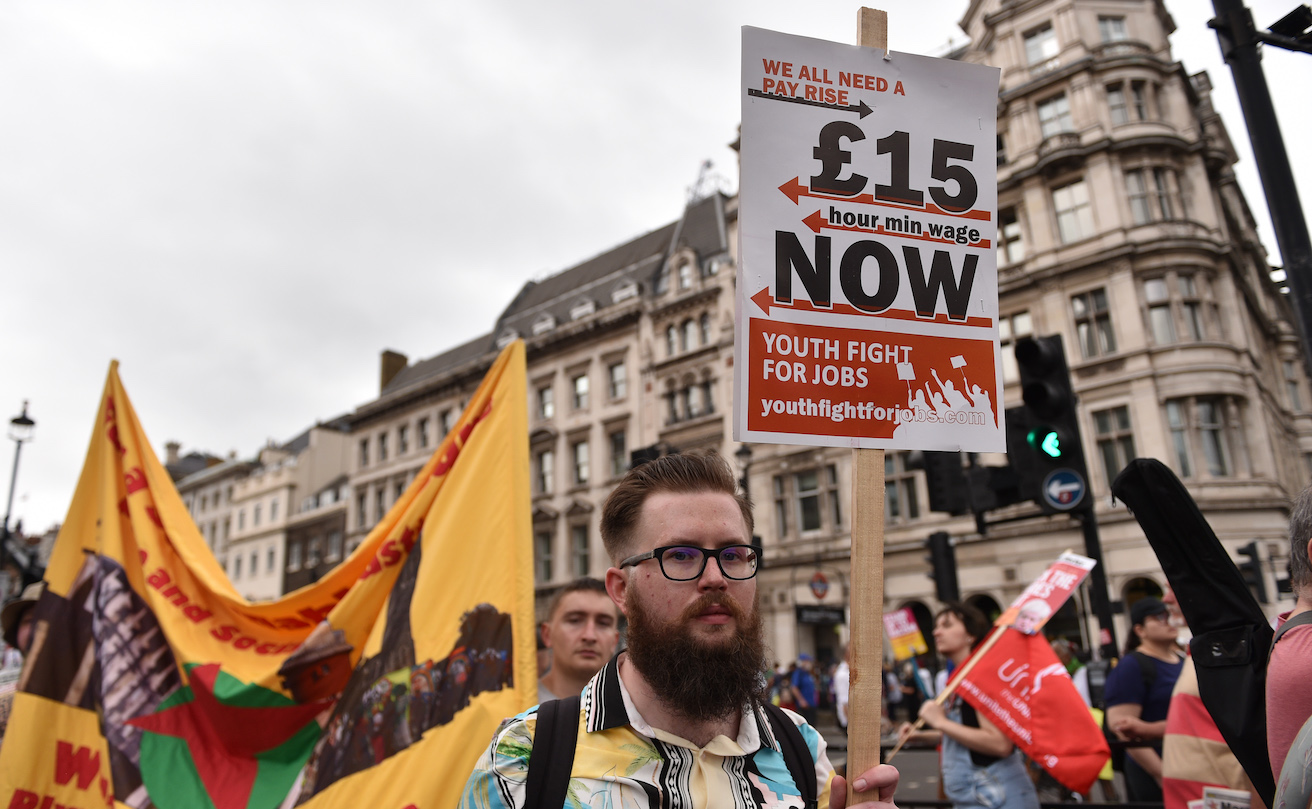What is the wage-price spiral?
Government warns of wage restraint to prevent spiralling inflation

A free daily email with the biggest news stories of the day – and the best features from TheWeek.com
You are now subscribed
Your newsletter sign-up was successful
UK inflation has hit a 40-year high amid threats of further strikes by unions demanding wage increases for struggling workers.
Newly released figures from the Office for National Statistics show that inflation rose to 9.1% in May, the highest level since March 1982. And the Bank of England (BoE) is predicting inflation will reach 11% this autumn.
As soaring prices for food, fuel and energy worsen the cost-of-living crisis, unions are calling for inflation-matching wage increases. But the government and Bank bosses are warning of the dangers of a wage-price spiral.
The Week
Escape your echo chamber. Get the facts behind the news, plus analysis from multiple perspectives.

Sign up for The Week's Free Newsletters
From our morning news briefing to a weekly Good News Newsletter, get the best of The Week delivered directly to your inbox.
From our morning news briefing to a weekly Good News Newsletter, get the best of The Week delivered directly to your inbox.
What is a wage-price spiral?
The term wage-price spiral refers to the idea that a consistent ratcheting up of workers’ pay to match the cost of living will lead to companies raising consumer prices “to protect their margins”, said the Financial Times.
The threat of this “repeating, self-fulfilling process” has been cited by Boris Johnson and the government as a key reason to avoid sharp wage rises.
“When a wage-price spiral begins, there is only one cure and that is to slam the brakes on rising prices with higher interest rates,” the prime minister said earlier this month.
BoE governor Andrew Bailey told the BBC in February that while a “moderation of wage rises” would be “painful” for workers, pay curbs were needed to prevent inflation becoming entrenched.
A free daily email with the biggest news stories of the day – and the best features from TheWeek.com
Does everybody agree?
Unions have questioned claims that increasing wages will lead to economic doom and have warned that workers are bearing the brunt of the inflation hikes.
The RMT, which is leading this week’s train strikes, is demanding that Network Rail workers get a 7% pay rise, in line with the cost of living. RMT general secretary Mick Lynch said the industrial action was a “mess” created by Transport Secretary Grant Shapps and government policy.
Sharon Graham, the general secretary of Unite, tweeted that the “runaway profits” of big businesses were “driving the inflation” crisis and causing a “national pay cut”.
Labour’s Lisa Nandy has urged ministers to “get around the table” with union bosses in order to resolve the pay dispute. Nandy told the BBC that “the biggest problem this country faces right now is not militant workers, it’s a militant government” which is “not doing its job”.
“Everybody is losing,” added the shadow secretary for levelling up.
Phillip Inman at The Guardian argued that the concept is based on an academic theory rather than empirical evidence and stems from the 1970s era, when workers “had a good deal more power than they enjoy today” due to unions and the level of financial support on offer from the government was lower.
The more “splintered” and “individualistic” nature of the 21st-century UK labour market makes a wage-price spiral “unlikely”, agreed Sarah O’Connor in the Financial Times.
“It is hard to overstate how fundamentally the labour market has changed,” she said, noting that only around 14% of private sector employees have their pay set through union bargaining nowadays.
What about pensions?
As the battle over wage increases continues, the government is standing by its pledge to raise the state pension in line with the September 2022 Consumer Price Index (CPI) rate, which is expected to be around 10%.
But the pension increase won’t be introduced until next April, when inflation is likely to be lower. As a result, pensioners will receive an above-inflation increase while many workers are experiencing pay cuts in real terms.
Economist and former Treasury minister Jim O’Neil told BBC Radio 4’s Today programme that the pension increase was “ludicrous and “crazy”.
Deputy PM Dominic Raab defended the increase by arguing that pensioners were “disproportionately affected by the increase in energy cost”.
No. 10 is also reviewing whether there are “any unnecessary restrictions” on how high-earning non-executive directors are renumerated.
Johnson is “risking a row” as pensioners and City bosses are set to benefit from government action, but public sector workers are not, said the Daily Mail.
Richard Windsor is a freelance writer for The Week Digital. He began his journalism career writing about politics and sport while studying at the University of Southampton. He then worked across various football publications before specialising in cycling for almost nine years, covering major races including the Tour de France and interviewing some of the sport’s top riders. He led Cycling Weekly’s digital platforms as editor for seven of those years, helping to transform the publication into the UK’s largest cycling website. He now works as a freelance writer, editor and consultant.